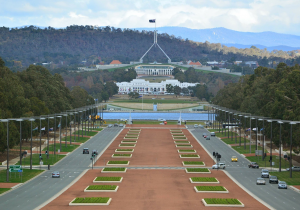At Executive Coach Exchange last week, we were discussing how short-termism affects performance.
This discussion was prompted by the recent McKinsey Global Institute and FLCT Global report showing that surveyed US companies with a long-term view consistently outperformed their short-term peers across most financial measures from 2001 to 2014.

• average revenue growth – 47% higher;
• average earnings growth – 36% higher; and
• average market capitalisation – 58% higher.
The research focussed on companies that were large enough to be under short-term pressure from investors, boards and others, with market capitalisation of over US$5 billion in at least one year during the survey period. They were evaluated against industry peers in an attempt to remove other factors that would affect performance.
The survey was based on five key assumptions about the behaviour of companies with a long-term view. These assumptions included that long-termists would:
- make more, and more consistent investments in their business;
- prioritise cash flow, absolute earnings and sustainable margin growth; and
- be less likely to make an all-out effort to hit quarterly earnings targets by small amounts, where doing so would divert resources from more important priorities.
Indicators of short-termism included:
- cutting discretionary spending, and delaying new value-adding projects, to avoid earnings misses;
- higher levels of stock buybacks; and
- lower capital investment.
This ties in with our earlier discussion about how good compliance can mean good business.
An organisation with a short-term view is likely to treat compliance as a cost centre, and implement a narrow, regulatory-based compliance system.
These organisations will treat compliance as a silo, which distracts from the organisation’s key mission.
There can also be too much attention paid to the possible financial penalties, including personal penalties – the short-term negative consequences of non-compliance – rather than what non-compliance says about the management of the organisation as a whole.
Seen from a long-term perspective, meeting regulatory requirements can be more than a cost centre. Compliance programs can align with and support the achievement of business goals.
Governance, risk and compliance programs, like solid accounting practices, can promote:
- effective oversight through clearer governance structures
- alignment of organisational strategy across business units or departments
- reduced costs through reduced risk exposure
- higher quality information flow to management
- integrated management of brand strategy and organisational reputation.
In this way, a solid governance, risk and compliance system can promote your business’ goals and brand value, and help to position you in that long-term group.
If you’d like to discuss compliance programs for your business, contact us.

 At about the same time as the
At about the same time as the  Here is a round-up of some key developments in 2016:
Here is a round-up of some key developments in 2016: Late last month the ACCC
Late last month the ACCC 



